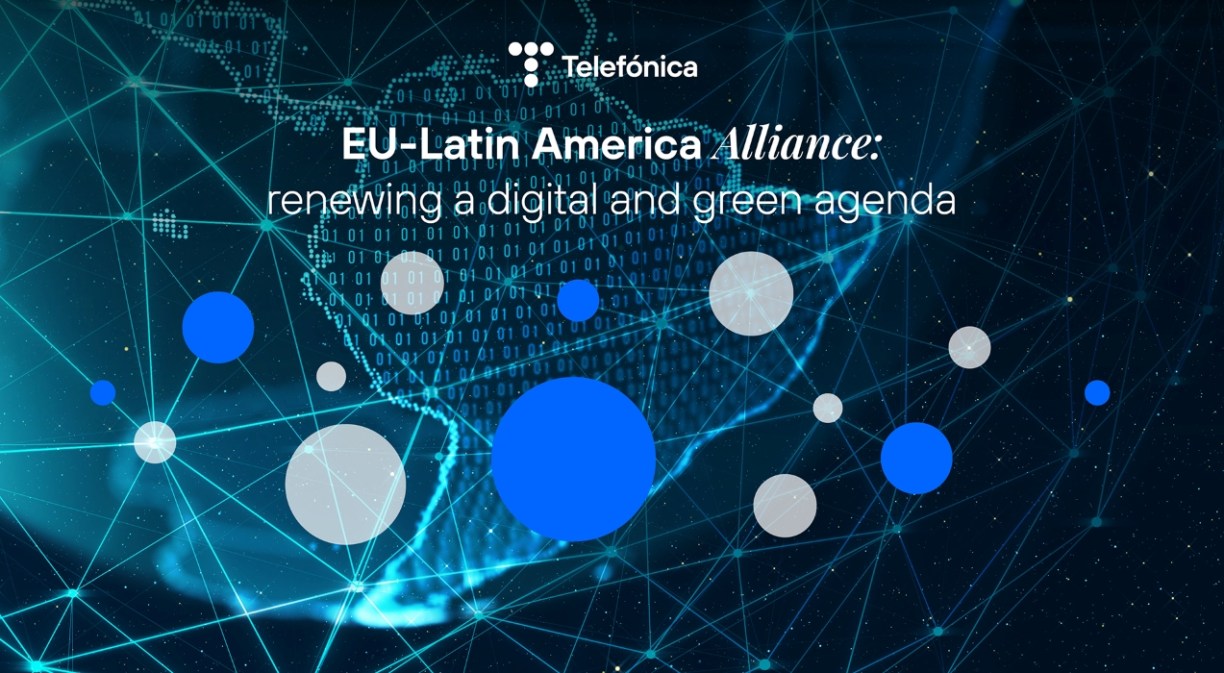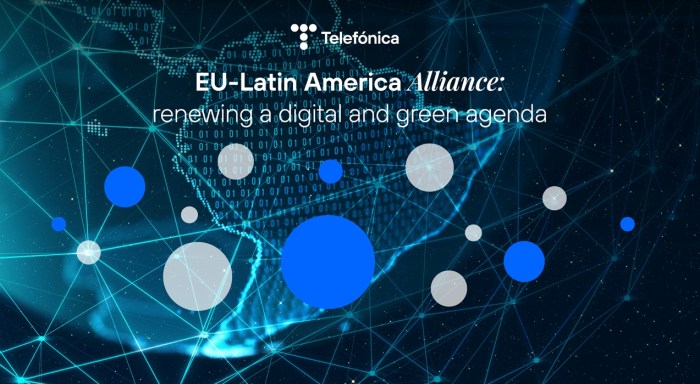The Spanish Presidency of the European Union, goes a step further to advance and strengthen bilateral relations between the two regions, prioritising an ambitious bilateral agenda. Among the main objectives of cooperation between Europe and Latin America are the digital and green transition, as well as social development, coinciding with the roadmap for a 21st century industrial policy that the European Union has proposed to follow.
In this line, as one of the key priorities, and ahead of the EU-CELAC Summit to be held in Brussels next week, in March in Bogotá the EU-LAC Digital Alliance was launched to foster the development of the digital economy in both regions and promote a secure, inclusive and sustainable digital environment, based on a public-private partnership that will last over time.
Global Gateway: driving economic development and international cooperation
This renewed cooperation represents a fundamental reconciliation that will boost the social, economic and political development of both regions, and enhance cooperation on the international stage. Thus, the Global Gateway initiative is an unprecedented opportunity to generate economic development and prosperity in the region, through public-private agreements that will enable digital transformation and make this bi-regional relationship long-lasting. Global Gateway can be the mechanism that will strengthen this union over time.
Telefónica, as an investor with a track record of more than 30 years in Latin America, has formulated a document setting out its vision on how to foster the rapprochement between Europe and Latin America around digital and green, inclusive, secure and sustainable transition in the region.
Networks as the backbone of digitalisation
We believe that networks are the backbone of digitalisation so that no one is left behind, which in the region must also be accompanied by:
- Public policies and an investment agenda to promote entrepreneurship and support the creation of start-ups and unicorns in the region, which is even more relevant considering that Latin America’s formal productive fabric is almost 99% made up of SMEs.
- Training and re-qualification programmes for young people and adults in digital skills, in order to provide them with the appropriate professional profile, increase job retraining and improve their employability.
We are convinced that, through Global Gateway and this Digital Alliance, the European Union and Latin America will be able to activate a public-private investment agenda to accelerate digitisation, the appropriation of digital skills and the deployment of 4G and 5G in the region.
In addition, the main proposals that Telefónica intends to promote in the countries where it operates, where the regulatory framework allows, will focus on the following areas:
- Internet para Todos (IpT): one of the most ambitious and high impact projects that Telefónica has developed in Peru, to provide rural connectivity and promote digital inclusion. Digital inclusion in conjunction with other entities in different geographies, such as Meta and IDB Invest and CAF.
- 42:The successful project based on the non-profit programming school, which offers an innovative and free educational programme for young people and adults interested in learning to program.
- Corporate Impact Venturing Latin America and the Caribbean (CIVLAC), which enables companies and startups to work together to solve social and environmental problems. CIVLAC relies on a network of companies and startups to develop projects and funds focused on financing technological solutions.
- Other projects that trigger investment and public-private partnerships for connectivity development.
Move forward the twin transition: digital and green, and the convergence of regulatory frameworks, where policies for voluntary infrastructure sharing are key
Along with all of the above, the green and digital transitions must necessarily go hand in hand with this transformation. Sound industrial policies with a central component in these areas need to be put in place to avoid widening the existing production, technological and ecological gaps and their associated negative consequences.
On the other hand, the region deserves a regulatory framework adapted to the 21st century that allows for the development of various innovations, along with attracting investment. Regulatory modernisation is needed, adapted to the era of incessant changes and technological advances that we are living through, which, on many occasions, are ahead of regulation.
In both Europe and Latin America we face similar challenges: data privacy, market competition, people’s digital rights, access to spectrum at reasonable conditions or having the right conditions to be able to carry out innovative projects. Cooperation between the European Union and Latin America can provide a new vision and public policy and regulatory solutions to promote institutional and regulatory modernization. It is a unique opportunity to develop convergent regulatory proposals.
If one policy is needed to incentivise collaboration between actors – not only from the digital ecosystem – and attract investment, along with facilitating innovation, it would be voluntary infrastructure sharing. In this regard, many countries in the region still have some way to go.

